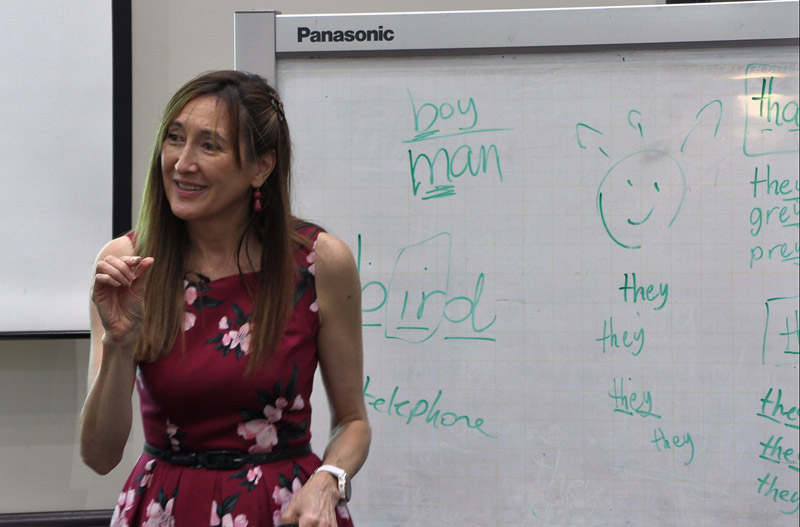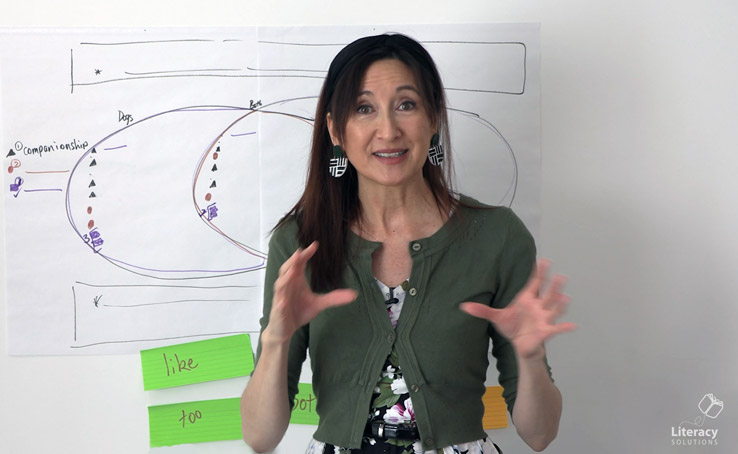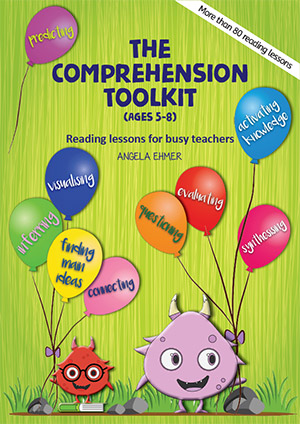Literacy Coaching – a Challenge with Great Benefits
As Education Queensland launches a new coaching initiative for qualifying schools, some of our finest literacy educators embark on a significant, new journey as literacy coaches. The role presents exciting opportunities, as well as the many challenges associated with supporting educators and school communities towards a shared goal of improved literacy outcomes for all.
Benefits of literacy coaching
The benefits of coaching and mentoring models are well documented. Schools having previously pioneered this model understand the power of this form of professional support, and how it impacts on student performance. It is well accepted that student outcomes are directly related to the level of teacher expertise. Coaching using a balance of both theory and practice can facilitate shifts in knowledge and understanding which translate into more effective pedagogical practice.
At the recent workshop, Novice to Ninja: The Six Secrets to Teaching Reading, it was inspiring to witness the high level of professionalism evident within the workshop group which consisted largely of experienced teachers and a small group of newly appointed literacy coaches. Teachers were required to be reflective during this workshop and to think critically about (their) existing pedagogical beliefs.
The challenge for educators / coaches
It can be challenging to ask oneself, “If he doesn’t get it, what do I need to do differently? How can I come at this another way? What am I not doing that I need to be doing for this student to achieve this goal?” I left buzzing that this group of teachers understood the importance of self evaluation, deeper analysis of reading behaviour, explicit teaching, strategic and independent application, ongoing monitoring and data analysis with goal setting. These teachers embraced the notion that these things must occur across all year levels and within all schools. It was inspiring to see teachers connecting new information with existing knowledge, assimilating new learnings with prior knowledge and arriving at synthesis as student examples were examined.
These teachers believe that the most valuable resource in any classroom is the teacher! This knowledge, along with a belief that all students can learn, is critical for coaches to support all teachers to make a significant difference to the lives of students.
Big coaching discounts for term one 2010
To kick start the new year, we are offering 20% off fees for in-school consulting services including coaching / mentoring for bookings from 1 February to 31 Mar 2010. Bookings for this period are on a first come basis and will go quickly. So contact us now to secure your preferred dates and get your school on the right track early in 2010.





As a former Reading Recovery teacher, I miss having professional discussions about literacy teaching practices with another professional. Recently, I had a visit from the school’s literacy coach and that was very enlightening as well as refreshing. Unfortunately, I was told that the literacy coaching position was only temporary…until June 2010. Sounds like another short term solution from the government.
Hi Angela
Literacy coaching is a brilliant initiative. Teachers already do it at their own level and the benefits are rewarding. Our school is in the process of implementing a new reading and spelling program and it would be worthwhile to have mentors to help facilitate these resources. It would be great to take part in your coaching for 2010 and I invite you to contact our Deputy Vicki Caldow as I have discussed on many occasions the brilliant work you can offer our school.
I am working on a project that would develop a practicum/action research for an academic coaching endorsement class. I would be interested in learning what kind of practical experience other literacy coaches would have found helpful in preparing them to be a coach and having an impact on student learning.
Hi Nancy,
I am both a middle school literacy coach and the district’s instructional coach trainer. We have scheduled professional development for all of our math and literacy coaches once a month. We come together from 9:00-12:00pm on the designated day and here is basically how the agenda rolls out. We are reading Jim Knight’s book on Instructional Coaching. There ‘s a DVD snippet of practice. We then discuss it and get engaged ina practical activty that can be used with the teachers. Protocols are very powerful.
Tom Chiola